When there is SIGABRT application, it is calling abort function from glibc
That is not true, this is not happening, unless you explicitly registered it.
I have enabled unwind for the glibc by using CFLAGS += "-funwind-tables"
It tells the compiler to add the information, it doesn't "enable unwind". What exactly happens when compiling with -funwind-tables?
Here, do_crash is called which does assert(0) which then aborts the main application.
This is not related to receiving SIGABRT signal.
Am I missing something here?
I believe you are making wrong assumptions - that something is called on SIGABRT, that SIGABRT is sent on assert, that abort() is called on SIGABRT. Nothing is called on SIGABRT and the program is terminated when receiving SIGABRT by default (see man 7 signal), assert just terminates the program and doesn't raise SIGABRT, and abort() raises the SIGABRT signal, not receives it.
How can I get the complete backtrace of the signals, particularly SIGABRT?
Register a handler that will do that. See How to automatically generate a stacktrace when my program crashes .
#include <execinfo.h>
#include <signal.h>
#include <stdio.h>
#include <stdlib.h>
#include <unistd.h>
void handler(int sig) {
void *array[10];
size_t size;
size = backtrace(array, 10);
backtrace_symbols_fd(array, size, STDERR_FILENO);
_Exit(1);
}
int main(int argc, char **argv) {
signal(SIGABRT, handler); // install our handler
raise(SIGABRT);
}
If you want to print stacktrace on assert() that's completely different and you would overwrite the glibc handler for assert to do that:
#include <assert.h>
#include <execinfo.h>
#include <unistd.h>
#include <stdlib.h>
#include <stdio.h>
void print_trace(void) {
void *array[10];
size_t size;
size = backtrace(array, 10);
backtrace_symbols_fd(array, size, STDERR_FILENO);
}
// based on https://code.woboq.org/userspace/glibc/assert/assert.c.html
void __assert_fail(const char *assertion, const char *file, unsigned int line, const char *function) {
extern const char *__progname;
fprintf(stderr, "%s%s%s:%u: %s%sAssertion `%s' failed.\n",
__progname, __progname[0] ? ": " : "",
file, line,
function ? function : "", function ? ": " : "",
assertion);
print_trace();
abort();
}
int main() {
assert(0);
}
